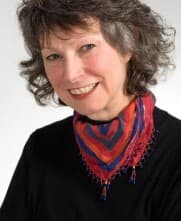David Love rocks!
- Written by
- Gwen Chapman
- Added
- October 22, 2013
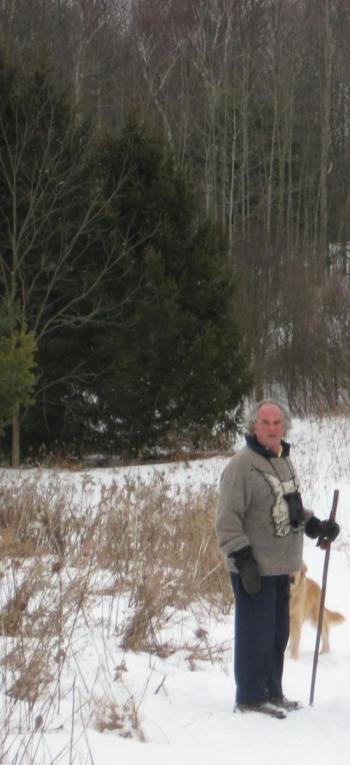
When David walks into a room, the lights go up a notch.
I first met David in 1988 at an international gathering of WWF fundraisers in Washington DC. David was different than anyone I’d ever met. Intense, smart, energised, restless, hungry for knowledge, rebellious, wild, creative, wacky, open to debate, knowledgeable, inspiring – and a listener. David is the kind of person who inspires action and makes you realise you really can make a difference in the world.
David is full of passion. He’s passionate about his family (including the four-legged members). He’s passionate about Canada, conservation, wildlife, human rights, donors, bird-watching, music, good food, red wine – and baseball. In fact, David is passionate about everything he does – and wastes no time on things that don’t interest him. And he’ll tell you so.
Described by some of our British fundraising colleagues as ‘colourful’, David certainly has presence. If David is in the room, you’ll know. You can feel his energy. Rosemary Oliver, Resource Development Director at Amnesty International in Canada says, ‘when David walks into the room, the lights go up a notch; when he leaves, everyone is left buzzing.’
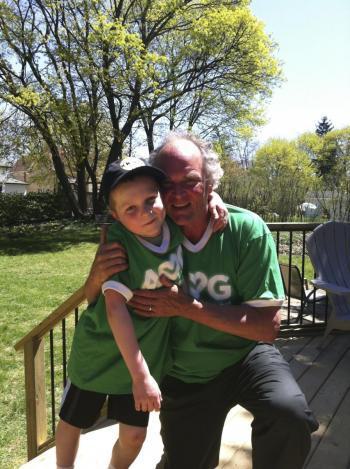
David has inspired and mentored literally hundreds of fundraisers around the world during his career. And he probably doesn’t even realise it. Because, as John Lepp of Agents of Good in Canada says, David is forever a student of fundraising. Despite being an experienced senior fundraiser, David is the one always asking the questions. He’s always turning over rocks to see what’s underneath. John describes David as a ‘restless spirit fighting to make change because it needs to happen – a tireless voice for the world and the dirt in our back yards.’
David has been raising money for almost half a century
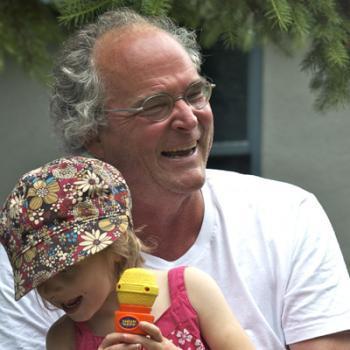
Education is close to David’s heart and he is both student and teacher. From his early career years as an English graduate, then as founder and principal of an alternative school in Canada’s Yukon, and today as a mentor, consultant and speaker at conferences – David generously shares his knowledge and is always eager to learn more.
Raised in a family with strong philanthropic values, David has been raising money for almost half a century.
In 1979 Monte Hummel, the then newly appointed president of WWF Canada, hired David as education director. David’s role was to develop young people’s knowledge and ability to make a difference in the world – whether through recycling, writing letters to politicians, or holding a class bike-a-thon to raise donations to save whales.
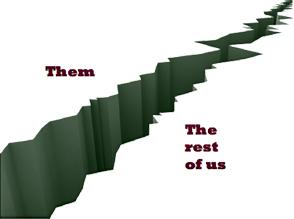
Back then, David was one of only three staff at WWF Canada. So he had to wear many hats and, as he was an English graduate, he did most of the writing – including direct mail packages. He would send the copy to global expert Richard Hamilton at WWF International for a final edit and David quickly and eagerly honed his fundraising and direct marketing skills.
A long-term and creative thinker, David helped mastermind a WWF ‘conservation endowment fund’ – brilliant concept whereby a donation of $25 purchased a ‘share’ in WWF – an endowment fund that wasn’t just for rich people. The return on shareholders’ investments was conservation results. And donors loved it. Some wrote to say they’d put their share certificates in a safety deposit box and, over the years, the annual conservation endowment fund mailing raised a substantial sum. Endowment fund proceeds were invested in fundraising activities to raise even more funds for conservation.
Steven Price, senior director of conservation science and practise at WWF Canada and one of those first three members of staff under the leadership of Monte Hummel recalls, ‘As David's direct marketing experience grew, and donations rose, we were in the enviable position of raising more funds from supporters than our programming needed. So David got permission to construct our first appeal for the tropical rainforest in Costa Rica. By the late 1980s, we had tripled WWF Canada's supporter base, raised over $1 million, and introduced Canadians to the thrill of saving over 20,000 acres of threatened forest in Costa Rica’s famous Monteverde region. This grew to conservation work spanning the Monarch butterfly in Mexico to the vast jungles of the Amazon. WWF Canada has kept a large role in international conservation ever since, one of the few outlets for Canadians’ interest and generosity in this regard.’
David pioneered the concept of ‘selling’ acres of rainforest to donors who would then become ‘guardians of the rainforest’. Initially donors helped WWF Canada support the purchase of acres of critical land in Costa Rica and later the ‘guardian of the rainforest’ programme evolved to protectcritical habitat. Over the years, WWF successfully used the same fundraising concept to protect habitat in Canada and elsewhere. Today, many other organisations successfully use this fundraising concept.
In the mid-1980s, learning that bequests were the lowest cost-per-dollar raised, David consistently reminded supporters in newsletters and elsewhere to remember WWF Canada in their will. His efforts were key to getting – and retaining – commitments. Today, more than a decade after David's departure from WWF Canada, he continues to work with the global WWF network to enhance their legacy programme and WWF Canada continues to reap legacy gifts from David’s era.
-------------------------------------------
If you’ve ever heard David’s voicemail, you’ll know that he updates his message every day with a new piece of information about something interesting – usually a literary quote or sage message about the environment, life, or baseball. When I left WWF Canada, I missed David so much I would call after hours just to hear his voicemail message that would inspire me for the day.
-------------------------------------------
Working with the one and only David Love at WWF Canada is, without doubt, the highlight of my career. David would arrive really early at the WWF office each day – hours before anyone else – and action his first three priorities. First, make coffee. Then crank up the music – choral or rock ‘n roll. Then record a voicemail message for the day. By the time the rest of the staff arrived, David would have already accomplished more than half the day’s work.
Throughout the day David would rapidly and purposefully pad barefoot around the office, making sure everything we all worked on was focused on results for wildlife. David would even stop by the data entry clerk’s desk, ask what she was doing and then exclaim, ‘Outstanding! Bernadette, you’re helping to save the grizzly bear!”
People would be inspired to make a real difference in the world
Precariously rocking back and forth in his chair, feet on the boardroom table, David would share his brilliant off-the-wall insight as programme and fundraising staff plotted integrated campaigns to save endangered habitat and wildlife, indeed, life on earth – including people. It was invigorating for everyone. And we’d come out of the meeting buzzing with a plan of inspired action to get results and make a real difference in the world.
In the early 1990s David was instrumental in getting a substantial investment loan from WWF International to enable WWF Canada to launch an aggressive donor acquisition programme, including a welcome booklet for new donors. It was a thrill for me to work with David on this booklet and help develop and implement his innovative and pioneering ‘we’re listening guarantee’ for donors. The ‘guarantee’ encouraged donors to play a role in establishing their relationship with WWF including decreasing the number of solicitations they received. Ahead of its time, it caused quite a stir among some of our more sceptical fundraising colleagues. But WWF retention rates and annual contributions increased steadily. And we were all thrilled when Ken Burnett highlighted both the ‘we’re listening guarantee’ and ‘welcome booklet’ as examples of relationship fundraising in practice in his book (Friends for Life: Relationship Fundraising in Practice, White Lion Press 1996). Soon other nonprofits started to produce welcome packages of their own.
Always the pioneer, David convinced the board of directors of WWF Canada of the value of investing in direct response television (DRTV) to recruit monthly donors. At the time, ‘infomercials ‘were the domain of child sponsorship organisations. It was a calculated risk with great return. WWF Canada launched a series of infomercials that ran for a number of years, dramatically increasing the number of donors pre-authorising monthly gifts.
He inspired tremendous commitment and devotion
On the corporate side of fundraising, at a time when most environmental organisations either accepted or did not accept corporate gifts, David was instrumental in establishing a revolutionary in-house evaluation policy to inform our corporate gift and sponsorship acceptance criteria.
During the 20 years that David worked at WWF Canadahe made a hugely significant contribution to fundraising and conservation. A wonderful leader, David built the fundraising team, giving us generous support and the latitude to try new strategies, always willing to try new things and take calculated risks. He inspired tremendous commitment and devotion from staff. ‘His farewell party was almost a Woodstock event,’ says Monte Hummel.
He’s not just insanely creative, he thinks so strategically
After leaving WWF Canada in 1999, David worked at Stephen Thomas for five years on special assignments and projects. His clients included Greenpeace, The Nature Conservancy, UNICEF, Amnesty International and the Canadian Cancer Society.
Rosemary Oliver of Amnesty International recalls how, starting in 1999, David worked with Amnesty International one day a month for about two years to help create a major donor programme. Rosemary says, ‘David never saw a box he could not think outside of. And he’s not just insanely creative, he thinks so strategically. He has this amazing ability to flick your brain cells. He’s innately kind but challenging. You’ll tell him your plan and he’ll tell you if it’s a dumb idea. Or he’ll just make a face and look at you that way – and you’ll ask yourself – what was I thinking? I feel so privileged to work with David.’ This year, David started working with Rosemary at Amnesty International once again – this time to help strengthen their major gift, monthly giving and international legacy programmes.
In 2005, David chose to accept the position of executive director of the Conservation Foundation of Greater Toronto because he believes passionately that our shared future depends on cities that are vibrant, healthy and green - in short, cities that are living. David thrived on the opportunity to work for this grassroots organisation that had a budget big enough for a strong integrated fundraising programme.
Brian Denny, CEO of the Toronto Regional Conservation Authority (TRCA), says: ‘With David’s reputation in the environmental movement, the simple fact that he chose to work with the Foundation that supports TRCA, was a major signal to the staff that we were “doing good stuff”.
‘David built the confidence of the whole organisation. When he told the staff they were doing important work, they believed him and tried harder. David challenged us to use our community networks to start to grow a base of individual donors and his reputation and networks led to new connections with important family foundations that chose to support our work.
Good news has to include at least one ‘critter’ story
‘While David has little time for the bureaucratic aspects of bylaws and motions associated with boards, his enthusiasm, charm and techniques of persuasion recruited many experienced and passionate members to our Foundation’s board. And his endless energy and sometimes radical approaches were influential in convincing the technical (programme) staff that they really needed to be fundraisers because they knew the compelling stories of challenges and accomplishments.’
Brian tells how David introduced the discipline of capturing and recording ‘good news stories' every month. The list of good news had to include at least one ‘critter story’ so that the Foundation stayed true to its roots in biodiversity. That process led to an internal culture that helped to drive the pursuit of financial independence or ‘happiness’ as David called it.
Linda Craib, supervisor of donor care recalls how David’s encouragement enabled her to pilot a very successful corporate events programme whereby she takes employees to do important restoration work on sites identified by TRCA. The activity allows her to develop a great rapport with participants and then allows the Foundation to continue to cultivate and talk to them about their philanthropic interests.
David was influential in the evolution of the Foundation from an organisation with traditional environmental projects to one that seeks to influence and support the sustainability agenda in a large urban region. And by the time David left the organisation it had been re-branded as The Living City Foundation.
Since ‘retiring from The Living City Foundation early in 2013, David is able to spend more time doing the things he especially loves – like spending quality time with his grandchildren, going on nature walks with family and donors, walking in the forest with his dog, bird-watching and working with passionate and committed colleagues as the ‘godfather of good’ at Agents of Good.
A lightning rod
Agents of Good was launched by Jen Love, David’s daughter, and John Lepp in 2009. Jen says that in creating the company Agents of Good, she and John put a name to what David has been doing for some 50 years. She describes Agents of Good as a way to embolden people to acknowledge that being an agitator and challenging the status quo advances philanthropy in a thousand different ways.
She says, ‘When David comes into a room, he’s like a lightning rod. He gives everyone, client executives and board members included, permission to take off their proverbial hats, talk frankly about the bad and unpleasant things the organisation is doing and why, and celebrate the things they’re doing well.’
The Agents of Good philosophy rings out in clients’ offices and stays in their minds. As John Lepp says, ‘David is the soul of Agents of Good.’
Ana White, who worked with David at WWF Canada and UNICEF, says how exciting and appropriate it is that in this new stage of David’s life he is working with his daughter, continuing to build on his legacy by combining family as the number one priority in life with his passion to help donors heal the world and leave their own legacy. Today Ana works as a freelance consultant to the nonprofit sector and, she says, she continues to be driven by David’s mantra ‘inspire me’ and his burning questions: ‘Where’s the emotion? Why should I care?’
Linda Craib says she was inspired daily under David’s leadership. ‘David taught me to speak from the heart; to listen and to share the “story” in our work. He encouraged me to pursue all ideas, have confidence in what we believe, explore where they lead us and to share our knowledge with others so that together we can achieve a greater impact.’
David has made a huge contribution to the nonprofit sector as a mentor, a fundraiser, and a donor. He has also served on a number of boards, including
- Catherine Donnelly Foundation
- Canadian Alternative Investment Foundation
- The Forest Board for the Ivey Foundation
- Oak Ridges Moraine Foundation
- The Natural Step Canada
- The Sustainability Network
- The Natural Burial Association
- The National Sanitarium Association
- West Park Healthcare Centre Foundation
- The Canadian Coalition on Acid Rain
A celebration
For David’s sixtieth birthday, his family hosted a special celebration at Meadowatch, the family home. The invitation encouraged people to share their David-related musings, thoughts and experiences. And they did with enthusiasm. What a brilliant idea. Why wait until a family member dies before sharing fond thoughts, memories and experiences.
It was a glorious long afternoon as one after another, friends and family members stepped forward to say a few words about the one and only David Love. Knowing that this was going to take place, David, in true David style, wanted to give back. And when everyone had had their say, he stood in the middle of the room with a scrap of paper uncharacteristically clutched in his hand. For each individual in the room, he had listed one word – a word that reflected what he’d learned or how he had benefited from knowing that individual. It was an awesome, emotional and memorable event.
David keeps adding to his legacy. In 2013 David and his wife, Ann, made a generous donation of their family land (Love Mountain) to the Nature Conservancy – part of one of the largest remaining intact upland deciduous forests on the Oak Ridges Moraine supporting older growth forest, wetland habitats and more than 110 bird species.
David Love – passionate fundraiser, donor and donor advocate, pioneer and influential mentor. Forever young and a true living legend of fundraising, David, to use one of your phrases, ‘you rock’! We are truly honoured to have you in our sector.



